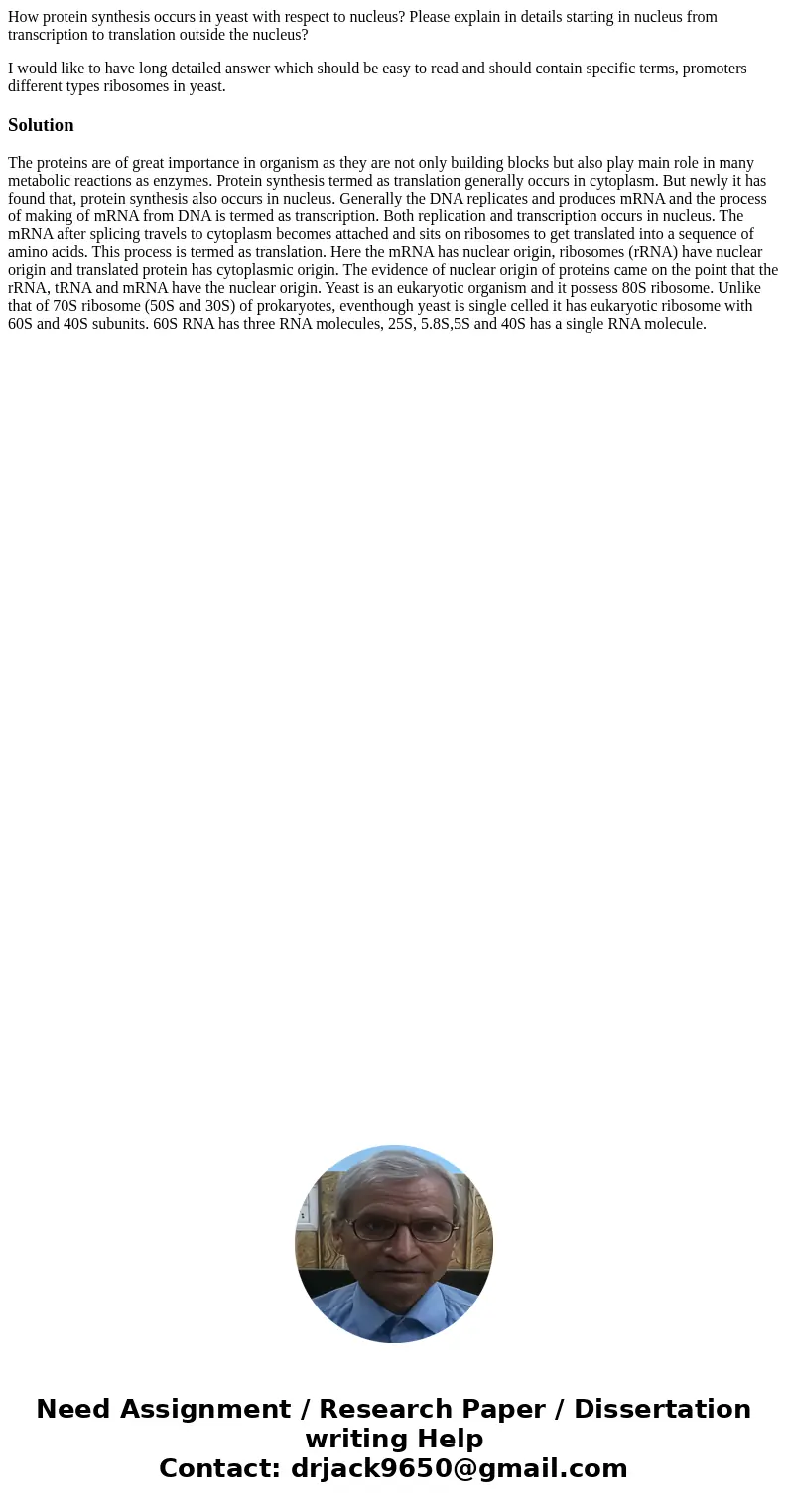How protein synthesis occurs in yeast with respect to nucleu
How protein synthesis occurs in yeast with respect to nucleus? Please explain in details starting in nucleus from transcription to translation outside the nucleus?
I would like to have long detailed answer which should be easy to read and should contain specific terms, promoters different types ribosomes in yeast.
Solution
The proteins are of great importance in organism as they are not only building blocks but also play main role in many metabolic reactions as enzymes. Protein synthesis termed as translation generally occurs in cytoplasm. But newly it has found that, protein synthesis also occurs in nucleus. Generally the DNA replicates and produces mRNA and the process of making of mRNA from DNA is termed as transcription. Both replication and transcription occurs in nucleus. The mRNA after splicing travels to cytoplasm becomes attached and sits on ribosomes to get translated into a sequence of amino acids. This process is termed as translation. Here the mRNA has nuclear origin, ribosomes (rRNA) have nuclear origin and translated protein has cytoplasmic origin. The evidence of nuclear origin of proteins came on the point that the rRNA, tRNA and mRNA have the nuclear origin. Yeast is an eukaryotic organism and it possess 80S ribosome. Unlike that of 70S ribosome (50S and 30S) of prokaryotes, eventhough yeast is single celled it has eukaryotic ribosome with 60S and 40S subunits. 60S RNA has three RNA molecules, 25S, 5.8S,5S and 40S has a single RNA molecule.
 Homework Sourse
Homework Sourse